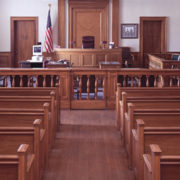Who Do Court Reporters Work For?
Court Reporter Washington DC
Are you wondering where to find a great court reporter in Washington D.C.? Maybe you are wondering, “Who do court reporters work for?” The answer varies between independent reporters, and government employee reporters. Court reporters mostly work for government officials in government courtrooms, although many also work freelance throughout the country. At Capital Reporting Company, we have thousands of court reporters located all over the world, dedicated to our team, that are well versed in all court proceedings. Not only do we have professional court reporters in Washington D.C. ready 24/7, we offer videoconference rooms in Washington D.C., legal translation in Washington D.C., and deposition services in Washington D.C. All of our services are available 24/7, all over the world via our Capital Reporting Company Portal, which allows our clients access anything and anyone involved in their cases no matter where they are. If you need a court reporter in Washington D.C., choosing one from Capital Reporting Company won’t be a disappointment, as we were voted the Best Overall Providers of Court Reporters and Deposition Services in the National Law Journal/Legal Times by our clients.
We only hire the best, meaning any court reporter in Washington D.C. you hire from Capital Reporting Company will get the job done right, the first time. We have over 3,500 court reporters all over the world, making Capital Reporting Company a leader in comprehensive litigation support. All of our court reporters can type 225 words a minute, with 95% accuracy or more, using the most advanced technology to enhance their proficiency. Many lawyers who need a court reporter in Washington D.C., also need services such as videoconference rooms in Washington D.C., legal translation service in Washington D.C., and other deposition services in Washington D.C. All of these services make it easier and more efficient for our legal clients to do their jobs, and make sure their information is correct and available to their clients. Capital Reporting Company knows how stressful it can be to keep track of everything, and to make sure your court proceedings are properly managed and documented. Let a court reporter in Washington D.C. from our services help you stay on track, and keep your clients and cases organized and accounted for.






